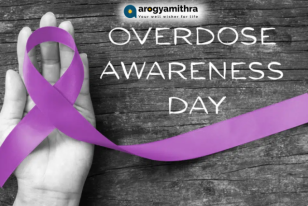Breathing Easy: Everything You Need to Know About Sinusitis
- 17 Feb 2023
- 0 Comments
- Doctor talks on health
Sinusitis, commonly referred to as a sinus infection, is a condition in which the sinuses, which are hollow cavities in the skull, become inflamed and swollen. This can lead to a wide range of symptoms, including facial pain, congestion, headache, and fever.
Causes of Sinusitis:
Sinusitis can be caused by a variety of factors, including allergies, viral or bacterial infections, or anatomical abnormalities that prevent proper sinus drainage. People who suffer from seasonal allergies are particularly susceptible to developing sinusitis, as the swelling and inflammation caused by allergies can interfere with the proper drainage of the sinuses. Other factors that can increase the risk of developing sinusitis include smoking, exposure to pollutants, and immune system disorders.
Symptoms of Sinusitis:
The symptoms of sinusitis can vary depending on the severity of the condition, but common symptoms include:
- Facial pain or pressure
- Nasal congestion
- Headache
- Post-nasal drip
- Loss of smell or taste
- Fever
- Fatigue
- Sore throat
Treatment for Sinusitis:
Treatment for sinusitis typically involves a combination of medications and home remedies. Over-the-counter pain relievers such as ibuprofen or acetaminophen can help alleviate pain and fever. Decongestants can help reduce nasal congestion, while saline nasal sprays can help flush out mucus and reduce inflammation.
In cases where sinusitis is caused by a bacterial infection, antibiotics may be prescribed. However, antibiotics are not effective against viral infections, which are the most common cause of sinusitis.
In addition to medications, there are a number of home remedies that can help relieve the symptoms of sinusitis. These include:
- Drinking plenty of fluids
- Using a humidifier to add moisture to the air
- Applying warm compresses to the face
- Using a neti pot to flush out the sinuses with saline solution
Prevention of Sinusitis:
Preventing sinusitis can be challenging, but there are a number of steps that can be taken to reduce the risk of developing the condition. These include:
- Avoiding exposure to pollutants and irritants
- Practicing good hygiene, including frequent hand washing
- Avoiding contact with people who have colds or other respiratory infections
- Managing allergies with antihistamines or other medications
- Quitting smoking
In summary, sinusitis is a common condition that can cause a wide range of symptoms. While it can be challenging to prevent, there are a number of steps that can be taken to reduce the risk of developing sinusitis. If you are experiencing symptoms of sinusitis, it is important to speak with a healthcare provider to determine the most appropriate treatment options.













Comments (0)